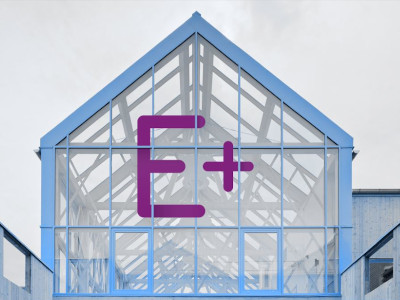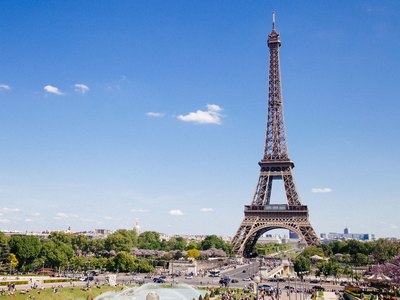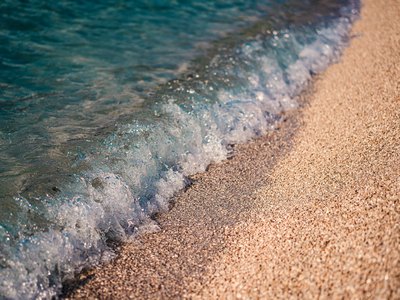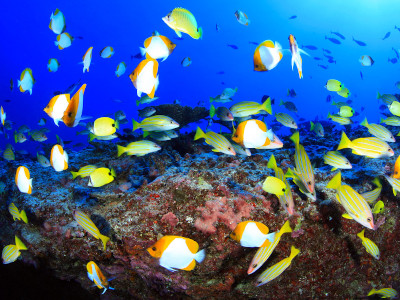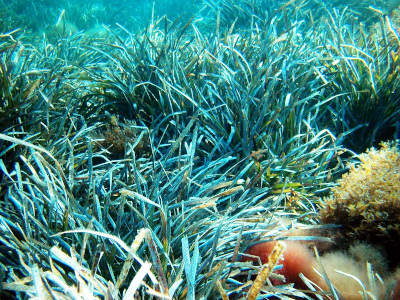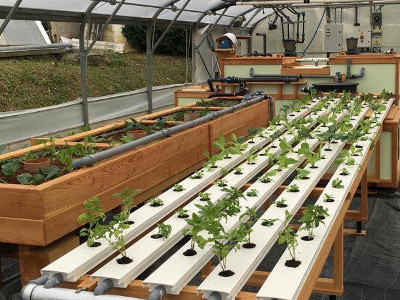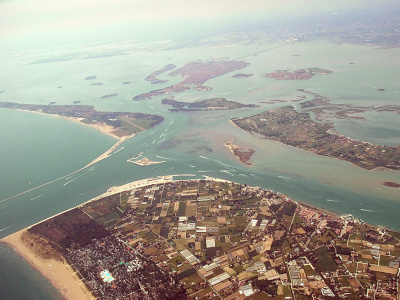Green and Blue Growth

Research Institute for Green and Blue Growth
Environmental technology and green economy
Enabling the uptake of climate information and services in real decision-making processes and finding resilient and efficient alternatives to our fossil-based economy are among the key challenges of our society.
Among the strategies currently explored are: the development of nature-based solutions aimed at improving resource and energy efficiency, the sustainable use of key enabling technologies including nanotechnologies, and the promotion of sustainable growth in the marine and maritime sectors (so-called blue growth).
Only a holistic approach that blends environmental sciences with geopolitical and economical studies can develop effective mitigation and adaptation strategies to climate change and other environmental challenges.
Keywords
Adaptation and resilience, Bio-economy, Blue economy, Blue growth, Circular economy, Decarbonisation, Green economy, Nanotechnologies, Nature-based solutions, Raw materials, Resource efficiency, Smart cities and communities, Sustainable growth, Sustainable company law, Systemic innovation
Coordinator
Research facilitator
Members
High-impact and award-winning projects
Cultural-E: Plus Energy Buildings
Cultural-E is a EU-funded project, which aims to define modular and replicable solutions for Plus Energy Buildings (PEBs), accounting for climate and cultural differences, while engaging all key players involved in the building life cycle. Cultural-E will develop technologies and solution sets that are tailorable to specific contexts and energy demands, as well as performing a comprehensive optimisation of the value/cost ratio of Plus Energy Buildings. Sets of design-for-assembly technologies will be developed through a careful mapping of European climates, building archetypes, and cultural energy habits. We are going beyond the state-of-the-art by maximising the share of the demand covered by renewable sources, towards zero emissions in the operational phase.
Project website / EU Cordis database
Researcher: Wilmer Pasut
Duration: 01/10/2019 - 30/09/2024
Funding: Horizon 2020 Industrial Leadership - Leadership in enabling and industrial technologies - Advanced manufacturing and processing
PARIS REINFORCE - Delivering on the Paris Agreement: A demand-driven, integrated assessment modelling approach
PARIS REINFORCE aims to underpin climate policymaking with authoritative scientific processes and results, and enhance the science-policy interface, in light of the Paris Agreement and associated challenges. In particular, the aim is to develop a novel, demand-driven, IAM-oriented assessment framework for effectively supporting the design and assessment of climate policies in the EU as well as in other major emitters and selected less emitting/developed countries, in respect to the Paris Agreement objectives. Building on an exhaustive facilitative dialogue and a strong ensemble of complementary -in terms of mathematical structure, geographical, sectoral and focus coverage- integrated assessment, energy system and sectoral models, we will create an open-access and transparent data exchange platform, I2AM PARIS, in order to support the effective implementation of Nationally Determined Contributions, the preparation of future action pledges, the development of 2050 decarbonisation strategies, and the reinforcement of the 2023 Global Stocktake. The project also seeks to enhance the legitimacy of the scientific processes in support of climate policymaking, by introducing an innovative stakeholder inclusion framework and improving the transparency of the employed models, methods and tools. PARIS REINFORCE will introduce innovative integrative processes, in which IAMs are further coupled with well-established methodological frameworks, in order to improve the robustness of modelling outcomes against different types of uncertainties.
Project website / EU Cordis database
Researcher: Carlo Carraro
Duration: 01/06/2019 - 31/05/2025
Funding: Horizon 2020 Societal Challenges - Climate action, Environment, Resource Efficiency and Raw Materials
SASPAS - Safe Anchoring and Seagrass Protection in the Adriatic Sea
The overall objective of the project is to improve seagrass preservation and restoration through laying safe anchorage innovative systems, performing pilot transplantations, carrying out monitoring activities and by defining an integrated management system for seagrasses in Adriatic area. The project will spend 30 months on three research sites: Panzano Bay, Monfalcone (IT), National Park Kornati (CRO) and Brindisi Coast in the Dune Costiere Natural Park of Torre Canne to Torre San Leonardo (IT). The SASPAS project is financed by the European Foundation for Regional Development under the Interreg V-A Program IT-CRO CBC (Priority Axis 3- Environment and Cultural Heritage). The lead partner is the Municipality of Monfalcone, and the project also includes seven (7) partners from Italy and Croatia. CoNISMa applied with the Local Research Unit of Trieste.
Website
Researcher: Adriano Sfriso
Duration: 01/01/2019 - 31/03/2022
SmartFish: Sustainable artisanal fishery of the Adriatic coasts
Artisanal Small-Scale Fishery (SSF) according to EU is the one employing vessels smaller than 12m LOA, not using towed gear. World-over, it is the most relevant fishery segment, deeply rooted in local traditions, adapted to the environment through coevolution, and inherently sustainable. For this, and for its potential to provide sustainable growth and jobs, in harmony with the marine environment, it plays an important role in the pursuit of Blue Growth. SSF face many challenges, such as difficult access to market, low prices, decreasing stocks and biodiversity in the catches, and freely moving resources between the waters of the two countries, thus calling for a cross-border cooperation approach. The objective of the project "SmartFish - Valorisation of SMall-scale ARTisanal FISHery of the Adriatic coasts, in a context of sustainability" is to strengthen the Small-Scale Fishery role in the near future, by fostering its potential for innovation within the Blue Growth context.
Project website / EU Cordis database
Researcher: Fabio Pranovi
Duration: 01/07/2018 - 31/12/2020
Oceanographic observations for biodiversity: ECOSS
The Adriatic sea calls for cross border actions in the field of preservation of ecosystem and biodiversity, one of the main territorial challenges. The whole area is under the influence of climate change and pollution that requires for joint, systemic and integrated management of coastal and marine resources that could be enhanced only adopting a cross-border approach. ECOSS (ECOlogical observing System in the Adriatic Sea: oceanographic observations for biodiversity) overall objective is the establishment of the ECOlogical observing system in the Adriatic Sea (ECOAdS), shared between Italy and Croatia, able to integrate ecological and oceanographic research and monitoring with Natura 2000 conservation strategies. ECOSS will represent an innovative integrated approach of ecological and oceanographic research with conservation programmes, linking and integrating the coastal and the offshore areas at transnational level.
Website
Researcher: Gabriella Buffa
Duration: 01/07/2018 - 21/12/2020
REDUNE - Restoration of dune habitats in Natura 2000 sites of the Veneto coast
Despite their valuable attributes for both human society and nature, dune ecosystems share a history of exploitation and mismanagement. Environmental problems associated with coastal misuse include loss of natural habitats and loss of the natural pattern of landscape, alien species spread, threats to native species, and decreased resilience of plant communities. Tourism is nowadays considered one of the principal cause of degradation, in particular intense tourism pressure coupled with a general lack of ecological consciousness of the value of these ecosystems may compromise not only the natural value and the ecological functionality of these systems, but also the quality of the recreational experience itself, raising the issues of environmental management and sustainable use. In light of this, the general purpose of this project is to re-establish and maintain over time the ecological integrity of habitats 2IIO|2L2O, 2130*, 2250* e 227 0+ and of Stipa veneta* populations, as a means to guarantee the ecological functioning of the entire coastal dune mosaic, in 4 Natura 2000 sites of the North Adriatic coastline, making use of an ecosystem approach that considers all ecosystem components (e.9. human activities, habitats and species, and physical processes) and applies well developed methods.
Website
Researcher: Gabriella Buffa
Duration: 01/09/2017 - 31/03/2022
Green Organic Agents for Sustainable Tanneries
Leather manufacturing is classified as water, energy and waste intensive and, according to European Directive 96/61EC, is considered to be an activity demanding for integrated prevention and control of pollution. Tannery effluents, if not properly treated, cause significant damage to soil and water bodies. Environmental concern clearly emerges from the European IPPC Bureau report 2013: at present over 85w% of the world leather production is chrome tanned and only 20-25w% of raw bovine hides processed are transformed in final leather goods. The current use of chrome poses serious environmental and health problems due to the formation of carcinogenic Cr (VI) in finished articles, prompting users to find innovative solutions. According to the EU directives, sustainable industrial processes and waste management are fundamental for ensuring a low level of risk and high environmental protection. LIFE GOAST project, with a LCA-LCC “cradle to grave approach”, will aim at demonstrating sustainability of the overall production chain from manufacturing of leather articles to treatment of solid and liquid wastes: the implementation of LIFE GOAST technology on a semi industrial scale will be demonstrated to be more environmental friendly than Traditional Chrome Tanning Process (TCTP). The ultimate aim is to obtain comparable/better quality leather product with lower environmental impact and costs, no concern substances disposal rather than TCTP.
Website
Researcher: Michela Signoretto
Duration: 01/07/2017 - 30/06/2020
Boosting green agrifood through aquaponics sustainable solutions
Aquaponics is an integrated production practice, strongly rooted on circular economy principles, which could lead to reduce impacts deriving from the agricultural sector: vegetables can be cultivated without the use of soil and limiting the water consumption up to 90%, if compared to traditional agricultural practices. In addition, this technique avoids the use of pesticides for plants, since these would harm the farmed fish, and it reduces energy consumption and greenhouse gases emissions. The project BLUEGRASS aims at introducing and sustaining the development of the Aquaponics technique in Italy and Slovenia (the area covered by the funding Interreg Programme).
Website
Researcher: Daniele Brigolin
Duration: 01/10/2017 - 30/03/2020
Life Lagoon Refresh
In the project "Coastal lagoon habitat (1150*) and species recovery by restoring the salt gradient increasing fresh water input" the concrete actions of recovery will be realized along the margin of the SCI Northern Venetian Lagoon, at the interface between lagoon and mainland. Among the main objectives: the diversion of a freshwater flow of approximately 1,000 l/s (action C1) from the river Sile into the lagoon - such action is necessary for the recreation of a salt gradient typical of buffer areas between lagoon and mainland, that has been artificially prevented in the course of the historical site management; the variation of bottom morphology through biodegradable structures, with a configuration designed in order to decrease the freshwater dispersion and favour reed bed development; the transplantation of turves or single rhizomes of Phragmites australis in order to accelerate reed bed formation and of small clumps of Ruppia cirrhosa, an aquatic species characterizing habitats 1150* and highly fed upon by waterfowl, with high degree of conservation and adapted to low salinity, to trigger and accelerate the recolonization of the area. The projects also aims at decreasing of the hunting and fishing pressure, by introducing a strict fishing regulation and involving local fishermen and hunters.
Project activities will be followed by an intensive environmental monitoring activity to verify the achievement of expected results and implement any useful corrective action (eg. regulation of freshwater flow). Parameters necessary to quantify recovery ecosystem services will be detected. The project also includes dissemination activities for both a general public and Italian and European specific targets.
Website
Researcher: Adriano Sfriso
Duration: 01/09/2016 - 31/08/2021

